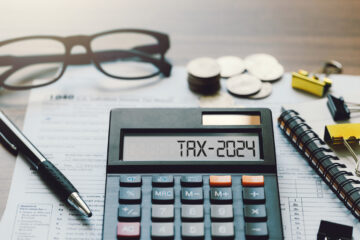Photo taken by Cathal Malin
It’s no secret that airlines were hurting during the coronavirus pandemic. Airlines quickly accumulated a lot of debt and struggled to make ends meet. However, a post-pandemic surge in travel quickly helped airlines get back on their feet, and they certainly took advantage of this opportunity. Nowadays, ticket prices are at all-time highs, with the price surges easily outpacing inflation. This leaves the budget-conscious consumer in a bit of a bind. How can one balance getting where you need to go whilst also avoiding breaking the bank in a world where it feels as if every airline is hopping on this trend? This article aims to address the causes behind this rising tide of prices and how the rational consumer can still find a way to protect their wallet when looking to fly.
What has caused this surge?
Air travel is a unique industry in how it was affected by covid, and the reopening of the skies allowed corporations to have some leeway in how they decided to restart the industry. Corporations gambled on the American consumer tolerating price hikes, and the market has proven them right. Airlines like Delta and United have increased their share of air-travel profits to over 80%, mostly due to new initiatives that get consumers to spend more one tickets, providing luxuries like more legroom or better food in exchange. Delta’s CEO Ed Bastian attributed these changes to a recent shift in American consumer habits to prioritize spending on experiences. To capitalize on this, airlines have prioritized the needs of high spending consumers, so it is no surprise that airfare continues to increase in price. Even budget airlines like Spirit and Southwest have started to abandon their ultra low-cost philosophy, now featuring more premium features passengers can pay extra for. With this new market trend towards air-travel being marketed and priced like an experience rather than necessary transportation, its possible prices will continue to rise.
Some other simple trends in the American economy are also behind these price increases. Trends in supply and demand have enabled airlines to raise prices, as record numbers of travellers attempt to book flights. Making matters worse, airlines have been playing with the floorplans of their jets, resulting in less seats as they expand premium sections at the expense of their economy classes. In 2004, a flight on a Delta 767 would have had about 250 economy seats, and today there are around 100 less. Jet fuel prices have increased by 150% as well. Not enough seats for all the would-be travellers combined with increases in airplane operating costs mean airlines not only are incentivized to charge more, but can get away with it due to the current lopsidedness in the supply and demand relationship for seats on airplanes.
Strategies to Save
Unfortunately, this price increase has not been limited to general carriers. Even the cheapest flights are up an average of 12% over the past year. Spirit, a major player in the budget flight space, just filed for bankruptcy. Additionally, especially high price surges for certain routes have left some frequent travelers hurting even more.
However, there are a few things that individuals can do to help their personal bottom line. For instance, whereas less than a decade ago people may have laughed at the idea of using a travel agent to book their flights and vacations, nowadays you can often find discounts there. Travel agents have access to fares that are not publicly available, meaning in some cases the flight prices you get from them will be cheaper than the ones you typically see online when booking yourself. Additionally, participating in frequent flier programs is more helpful now than it ever has been before, with more opportunities to earn bonus miles than in the past through things like credit card programs.
Implications for Vanderbilt Students
Every Vanderbilt student lives in Nashville, but that doesn’t necessarily mean it’s their home. Only around 10% of Vanderbilt’s undergrads reside within Tennessee, so for the rest of the student population, returning home often means flying. With the constrained budgets most students are facing when looking at booking these flights, it’s important for Vanderbilt students to try to bargain hunt when looking for a way home, which is especially hard now in this era of increasing fares. However, there are a few things you can do to minimize your expenses. For one thing, although budget-carriers have been increasing prices, if you are able to travel home while packing light (meaning only bringing a carry on), you can still save a lot of money by choosing an airline like Spirit or JetBlue over a carrier like American. Additionally, if your family has a membership to any one of AAA, Costco, or AARP, you can get better deals on flights by using the complimentary travel agent services they offer. Planning ahead will often net you better deals, with studies showing that booking between 1 and 3 months in advance leads to the lowest prices.
Vanderbilt students need flights, and in this world of rising fares, it can be tough to budget for trips home or vacations. Especially when reliable sources for low cost travel have pivoted towards increasing rates, many students can be left feeling unsure how they can afford to see their families more than just during the summer break. Hopefully, with these strategies in mind, Vanderbilt students can navigate this new air travel environment, and still find ways to get home without breaking the bank.



